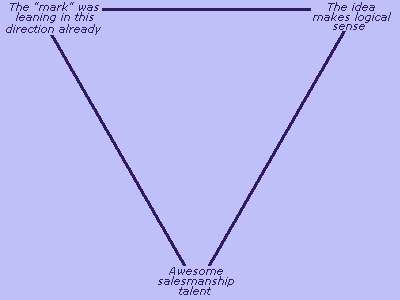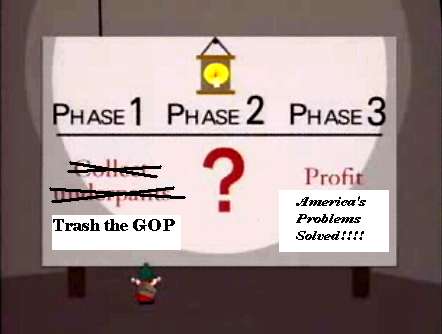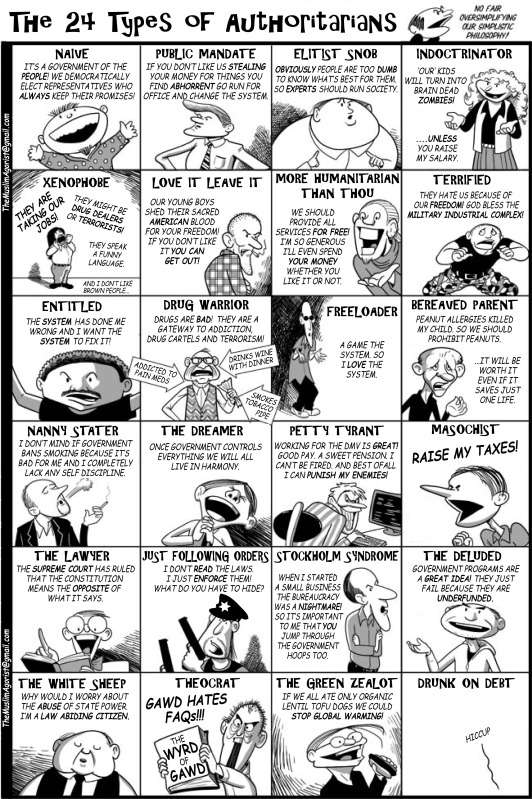Irish Cicero, chief cook and bottle-washer of Washington Rebel where I am a new contributor, wants to talk about Armageddon. It is the subject of this post, as well as in a private e-mail thread that has been bouncing around this week. I was quietly abstaining from it altogether because it’s already an important item within My 42 Definitions of a Strong Society — the last of the set:
42. Armageddon is not breathlessly anticipated. Very rarely does anyone talk about the entire world ending, for any reason.
Why is it a definition of a strong society to avoid talk of Armageddon? More precisely, why is it a definition of a weak one to go ahead and discuss it; to cite more accurately, to “breathlessly anticipate” the end of everything?
Because, to me, it represents absolute hopelessness, and a drive to talk about Armageddon represents a yearning for hopelessness. It also represents a departure from reality. You enjoy a much greater likelihood of suffering from a heart attack, without warning, than sitting here in your own natural lifespan when Jesus comes back. Thinking about the heart attack before it happens might be a constructive exercise. But the heart attack is not absolutely hopeless. Maybe you’ll be next to someone else — someone not having a heart attack, who will be in a position to help you.
The end of the world is exactly that, though. The Man Upstairs says, I’ve decided to make a clean wash of it. What are you going to do? Appealing to a higher authority is out of the question, as is making a wonderful speech to Him pointing out some new facet to the situation that somehow escaped His notice.
So I don’t want to talk about Armageddon. I don’t think that is what we are in. I rocked the boat with a suggestion we give it another name, and as of now it remains an open question what we’re going to call it. It is now likely we’ll refer to what is happening by some other name…which greatly enhances the potential of my participation. This is a good thing. I’m not happy with conversations that begin with the expurgation of any & all hope, and go forward from there. I tend to tune out.
Also, I’m unhappy with the level of thinking that tends to accompany the “breathless anticipation” of the end of the world. I’ve found it to lack robustness, logic and tensile strength. Just think on it for a minute with the emotions kept at bay: How do you go about justifying this theme to it, which everyone understands is paramount and central although very few say it out loud — that we are culpable? God wants to hit the reset switch. How much guilt should we really feel about it? The only reasonable answer is “none at all.” It is the height of hubris to say “must be something I did or didn’t do.” We’re that important? Really?
And so such exercises have it in common that they start playing hopscotch; they shift from one foot to the other, from a pious worldview to a more secular one. God’s formatting the disk — no, He isn’t doing it because He isn’t there, we are. Back in the fifties they came up with a replacement god in “The Day The Earth Stood Still” called Klaatu, who belonged to a race of aliens sitting in judgment of us. They were going to topple our Jenga tower. Because we were bastards and we deserved it. This has been an ongoing theme.
I don’t like talking about Armageddon. It represents, to me, abdicating all control of the conversation to those sitting at the table who have no hope. It is an indulgence in hopelessness. To me, there has to be some hope; if there isn’t any, I’d prefer to make up my mind about that myself thankyewverymuch. And once I’ve satisfied myself of that you’re going to find my interest in the conversation has reached an end, not a beginning. Some folks are my polar opposite, I’ve found; they only start their emotional investment when the hope is measurably gone — and I don’t even want to be around these people.
The folks who have far more money than I do, and made it all themselves…I’ve noticed they all operate this way. If you’re one of these Gloomy Gus people who just suck the energy out of the room, they kick you out. If they can, and if they can’t then they beat feet outta there. They don’t want to be around hopelessness. I suppose anyone who has a vision for solving a problem, or who merely wishes to form such a vision, has to be this way.
But I would like to participate in Cicero’s discourse. This is an important point he’s raising. We’re in something that, before, we weren’t in. Or we were not quite so submerged in it.
What then do we call this? Life in 2010 is not normal. Something is definitely happening. It is not the end of the world, because there is hope. There is abundant hope; in fact, if November comes & goes and the children are still running things at the end of it, very little of this hope will have dissipated. What’s the word to describe it?
I like the word “quickening” an awful lot. The changes are washing over us, bigger and bigger, and closer together. The smaller changes that change nothing, but act as harbingers of the bigger changes that are linked to them — they are becoming bigger and closer together as well. I see it on these here innerwebz. The loudmouths who insist on getting the last word, telling me I’m stupid and have the wrong idea about something; maybe they’re right, maybe I’m getting much stupider because it certainly seems I’m being told so a lot more often, by more and more people. Truth be told, the one factor that makes it hard to accept this, more than any other, is the frequency and enthusiasm with which I am told about it. We quickly reach a point where it’s been pointed out a little too quickly, a little bit too energetically. The whiff of desperation is unmistakable.
I am in error when I don’t help to condemn Andrew Breitbart.
I am repugnantly wrong when I insist on solid evidence before believing the tea party is chock full of racists.
I am certifiably stupid when I doubt the settled science of climate change.
I am committing sacrilege when I don’t bow before Shirley Sherrod, kneeling, kissing her, uh, her ring.
And for thinking a military exists for the purpose of fighting and defending something, rather than to provide free higher-education benefits to the enlistees, I’m an oaf.
I’m nuts for thinking there was anything dangerous about Saddam Hussein. Ever.
I’m making a dreadful mistake thinking Sarah Palin personifies what feminism was really supposed to be.
And I need to trust His Holy Eminence at 1600 Pennsylvania. He has the economy well under control. That unemployment rate will drop again, just as soon as He’s all done cleaning up FaPoBuAdtm, the Failed Policies of the Bush Administration. I’m a big ol’ dummy for thinking it would have been nice for Him to bother to show up, in person, to the Boy Scouts’ 100-year celebration rather than going on an airhead ditzy female talk show.
Now keep in mind…I’m only mentioning the most harmless things that I am, according to those who disagree. They have much worse things to say about my fine self. Since, thus far, I’m the only one they’ve met all across the world wide web, who disagrees with them about anything. Except I’m not. In fact, I’m generally not in the majority very often on a given issue, but on many of the above items I’ve found that I am; it is my opposition that is badly outnumbered. Which means very little to me. Except — still, they continue with the bullying. With the numbers extraordinarily lopsided, in the given locale, something like thirty-to-one. They’re the ones to bring it up. Their disconnection from reality complete, they continue their onslaught with the bullying “everybody knows” schtick, when it’s patently obvious that “everybody” knows no such thing.
It’s been happening more and more. More this year than in the two years before, which is saying a lot…and more the last two weeks, than all the months before. It’s a quickening. It’s a plague straight out of Book of Exodus. A plague of fools.
It’s hard to see what is happening here until you take the time to inspect the actual words exchanged, and read between the lines. Look under the surface. Then it becomes crystal clear.
Before I get to that, though, let’s go back to what Irish Cicero wants to talk about. The quickening.
It is a degradation of something. In the private e-mail thread, I compared it to a ruptured gas line burning away at the base of a steel tower. Nobody on God’s green earth can extinguish it. The tower remains standing for an hour, maybe two, but at some point the structural strength will dissipate and that tower’s coming down. If you’ve never experienced this in real life, I can tell you it is an amazing sight. Just one within the crowd will be most sensitive to motion at a distance, and the cry will go forth: “Ah, there she goes.” It won’t be mistaken, and a moment or two later it will be visible to everyone. But still the tower will remain standing, for the better part of a minute or more. Nobody really knows. No one is looking at a timepiece.
That is where we are. We have these “junkies” arguing about trivial bullshit on blogs. But it isn’t bullshit and it isn’t trivial. They…we…are the eagle-eyes, perceiving the movement first. What this says about us, is unimportant. The facts worth considering all have to do with that steel tower.
Another analogy is more obvious: You inflate a basketball to full capacity, and drop it on the level pavement. Boom, boom, boom, boom-boom-boom…they get closer together, very slowly. A gradual quickening. Once it diminishes into that brrrrmmmmm sound, something that existed before has been lost. I like this one because, after the basketball is at rest you can always lift it into the air and drop it again. This, I think, is where we are headed. We’re learning something about ourselves, withholding our efforts so we can see how things shake out. Eventually, we come to understand that it really is all about us. If we want to get some energy out of these objects, we have to put some in.
But the analogy that fits the best, is the darkest one. Every parent’s worst nightmare: Your child was right there just a moment ago, and now s/he’s nowhere to be found. Those first few moments that seem like days, are gone now, and now you’re facing days that seem like lifetimes. The police are looking, and your head is wracked with echoes of WHERE?? and HOW??
This is the best fit for where we are. We have hope, but we do not know how this is going to end. There is something precious to us that we think is still around, although we are not sure of it. The dreadful, unthinkable possibility exists that it may be gone forever.
We’re beating ourselves up constantly with thoughts that contain no perceptible words, other than “if only.”
We hope, and hope, and hope some more that there is a happy ending to this waiting. We don’t really know if it will happen. And we cannot presume the worst, so we concentrate on the when. But we don’t really care about the when. If we have to wait in order for it to come out right, we’ll wait.
But if that happy ending does come to pass, boy oh boy are there ever gonna be some new rules in place!
Yep. That’s it. That’s where we are.
There are those, though, who do not want to put the new rules in place. There are those who, by some neglectful act, or failure to act, allowed the child to go missing…read that as, “voted for Barack Obama.” The rest of us understand that the resulting disaster is so grave, that there is an indecency involved in pointing out their culpability in this. It is useless, it is cruel, and they already know.
And so they take advantage of our compassion and distance themselves further from reality. Then they get angry with everybody else. They begin to behave as if someone else was responsible for losing the child. They project.
Here, I connect this back to the loudmouths on the Internet who like to pretend someone else is the problem. I’m circling back to this thing you realize when you read between the lines, when you look under the surface. What makes them so frenzied, so desperate, so anxious to find racism where it is not, and to overlook it where it is.
It is guilt.
In 1945, we, and the Soviets, defeated the Nazis. Sixty-five years ago this very week, we had victory in Japan. That was the beginning of the Cold War. The communists began to try to infiltrate their new enemy, the Free World. This particular war, contrary to popular belief, has never ended. The USSR crumbled much like that steel tower, they had a “quickening” of their own, but the communist movement survived even the demise of their host state.
True communism doesn’t live in a state. It is a base human impulse. It is the darker side to our human nature and it lives in all of us.
It survives by means of guilt, and it propagates that way.
Here in America, it is hard for us to see it working. We are not like Europe. The misadventures involved with visibly different peoples integrating, coming from different races and different backgrounds, is interwoven with our history. All of our history. The challenges were with us at the very beginning, every moment up until the Civil War, every moment since then. We have always struggled with this.
And the encroachment of the communists depends on this. Communism invades by means of guilt. That is what they do.
I’m not talking about guys with Russian accents wearing Che Guevara hats. There is no requirement for such a thing, any more than vampires in our modern movies have to go around wearing fine tuxedos like Count Dracula. Communism is, as I said, burned into the motherboard of humanity. It is jealousy. It is a desire for misery and failure to be equally distributed, and we are always going to be burdened with it.
These are people who made dreadful mistakes, and they know it. They want all others to be equally culpable.
If they can’t keep their jobs, they don’t want you to keep yours.
If they got fooled by something, they want you to be fooled by the same thing.
And they think it’s silly to talk about communism. The communists were defeated, haven’t you heard? And so there must be no such thing. Our elected leaders can prattle on all day long about “I do think at a certain point you’ve made enough money,” and no alarm bells go off. Said leaders are obviously not talking about themselves, or any of their friends, who can make just as much money as their little hearts desire. The rest of us, whose names are not stored in the right Blackberry devices and don’t play the right golf games with the right people, need to live under a ceiling.
It is aristocracy versus commoners. It is exactly what the American revolution, and the Bolshevik revolution, were supposed to banish forever.
Communism, socialism, collectivism, call it what you will — it has emerged from the fog as a synonym for this aristocracy. The leader of such an assembly possesses rights and privileges not too far different at all from those of royalty. We don’t have any church elders running around putting it into words that the glorious dictator rules by Divine Right — but we act that way. He can “make” as much money as He wants, whereas we cannot. He’s different.
I would have to imagine any supposedly egalitarian society is going to have to struggle against the same challenge. Forever. It will remain egalitarian, only so long as the people living there understand that some people succeed at things and some people fail…and that is quite alright. When we start trying to fix it, spread the wealth around, we constantly fail and we end up spreading the misery around instead.
And then we create a new caste of “leaders” who are to be spared from this misery that is being equally spread around.
And they become royalty.
The child is kidnapped — the people who created the situation through their neglect, start projecting their feelings of guilt onto others. And then there is a quickening.
All quite unavoidable.
But not hopeless. Never hopeless. We are humans, we have brains. We can learn. That means we can prevail. Not forever; the struggle will never be over. But we can show some real humility, learn from our mistakes, and resolve to never allow that child to be kidnapped again.
It’s called vigilance. It is the everlasting responsibility of ordinary citizens. The founders of our republic made a point of mentioning, several times, that it is a fundamental requirement and will be one forevermore.
Guilt? That’s the opposite of vigilance. Guilt cannot be complete until it starts to affect decisions; which means, those decisions are made differently because of the guilt. That means they’re made wrongly. And here we come down to another truth, one everybody understands deep down, that is so rarely put into words: Guilt is not good. Decisions that are made out of guilt, are not recalled later with fondness. People don’t say “I’m so glad I felt guilty at the time and made that decision.” Go over those decisions sometime. You’ll find the theme that permeates through them, is not that they are beneficial to whoever suffered the plight inspiring the guilt, but that they are injurious to the person who made the decision. They are self-destructive decisions. They are bad decisions — as a deliberate, non-negotiable object of the exercise of making decisions out of guilt.
That’s why communists like guilt. It leads to suicidal decisions. You need some guilt to sell their product to people.
And so we are going through a quickening with our guilt. We are finding, the hard way, that this is an emotion that has no redeeming value. I suppose there are some people to whom it comes naturally, and it’s unavoidable. Like, every day you need to have something approaching eight hours of sleep — and you need to feel guilty about something.
I will not begrudge them on this. Feel guilty if you have to, but making decisions while you feel that way is about as smart as shopping for groceries while you’re hungry.
 Among those who labor under a natural incentive to try to make wise, logical, reasoned decisions, the wisdom/logic/reason usually does not have the final say. We like to think it does, but it’s really a hodge-podge of three things which could be thought of as legs on a three-legged stool:
Among those who labor under a natural incentive to try to make wise, logical, reasoned decisions, the wisdom/logic/reason usually does not have the final say. We like to think it does, but it’s really a hodge-podge of three things which could be thought of as legs on a three-legged stool:









 Know what this reminds me of? Al Gore invented the Internet. Or, every politician screws around on his wife just like Bill Clinton. Palin said she can see Russia from her house. In all these cases, once you found out all of what was going on, the leftist, statist position ended up looking not so well off, not the way to go. But if you learned just enough to be dangerous they looked golden — so The Left, ever accustomed to dictating to people what they should learn and what they should not learn, encouraged its followers to form a picture of what’s going on about as brilliant and vibrant and detailed as a Hanna-Barbera cartoon. It has become such a carefully nurtured predilection now, that the loyal leftist fully expects to walk past the same clump of trees over and over again every three seconds.
Know what this reminds me of? Al Gore invented the Internet. Or, every politician screws around on his wife just like Bill Clinton. Palin said she can see Russia from her house. In all these cases, once you found out all of what was going on, the leftist, statist position ended up looking not so well off, not the way to go. But if you learned just enough to be dangerous they looked golden — so The Left, ever accustomed to dictating to people what they should learn and what they should not learn, encouraged its followers to form a picture of what’s going on about as brilliant and vibrant and detailed as a Hanna-Barbera cartoon. It has become such a carefully nurtured predilection now, that the loyal leftist fully expects to walk past the same clump of trees over and over again every three seconds. But anyway, I don’t regard myself as a Fox News watcher. If I beat the Lady of the House home, I might turn on Hannity if there’s enough time to attend to a casual chore like hanging up my shirts from the drier, but not enough time for an episode of Dukes of Hazzard. Only in the spirit of, since these are interesting times in which we live, I don’t want to be completely cut-off from the outside world for an evening…and I can’t hit the news scrolls on the computer when I have a “One Big Ass Mistake, America” tee shirt in one hand and a hanger in the other.
But anyway, I don’t regard myself as a Fox News watcher. If I beat the Lady of the House home, I might turn on Hannity if there’s enough time to attend to a casual chore like hanging up my shirts from the drier, but not enough time for an episode of Dukes of Hazzard. Only in the spirit of, since these are interesting times in which we live, I don’t want to be completely cut-off from the outside world for an evening…and I can’t hit the news scrolls on the computer when I have a “One Big Ass Mistake, America” tee shirt in one hand and a hanger in the other. The other thing that’s important to note here is that when we apply anecdotes from our own experience to the thought processes that form our behavior, we are indulging in what in the higher-education environment is referred to as “prejudice”; this is, of course, actively discouraged there. There is much complaint now that college campuses are maintained as diverse environments only in terms of skin color, not in terms of ideological leanings. But the truth is that it isn’t really possible for a college campus to lean in several different ideological directions, nor in several directions on any discussed question or issue, when participants are dissuaded from relying on any-and-all previously cherished values or previously experienced events. Without those, there can only be — what you learned in prerequisite coursework, what you have been told here this semester, and what you are experiencing today. The compliant but diligent student will not allow anything else to affect the outcome.
The other thing that’s important to note here is that when we apply anecdotes from our own experience to the thought processes that form our behavior, we are indulging in what in the higher-education environment is referred to as “prejudice”; this is, of course, actively discouraged there. There is much complaint now that college campuses are maintained as diverse environments only in terms of skin color, not in terms of ideological leanings. But the truth is that it isn’t really possible for a college campus to lean in several different ideological directions, nor in several directions on any discussed question or issue, when participants are dissuaded from relying on any-and-all previously cherished values or previously experienced events. Without those, there can only be — what you learned in prerequisite coursework, what you have been told here this semester, and what you are experiencing today. The compliant but diligent student will not allow anything else to affect the outcome. According to the methods we are told are sound, that’s only reasonable!
According to the methods we are told are sound, that’s only reasonable! Perhaps just a smidgen. A wing. A foot, maybe. Well, let’s get it choked down. Clean your plate when crow is on it, for if you leave leftovers you should expect a steady diet of it.
Perhaps just a smidgen. A wing. A foot, maybe. Well, let’s get it choked down. Clean your plate when crow is on it, for if you leave leftovers you should expect a steady diet of it.
 But I do not wish to criticize the machinery. Machinery breaks. My words of criticism are for people. Consider the interesting psychological differences here.
But I do not wish to criticize the machinery. Machinery breaks. My words of criticism are for people. Consider the interesting psychological differences here.
 Making a drug illegal is a states’-rights issue. It would be better to legislate such a matter at the county level than at the state level. It would be even better to decide it in a township. Best of all, make it a homeowners’-association clause. The idea of one man, pointing at another man across the miles, lakes, fruited planes, degrees of longitude, into some locality he will never visit, and declaring what the other man may not consume, just repels me. It’s not just a constitutional question, it’s a question of sound law enforcement.
Making a drug illegal is a states’-rights issue. It would be better to legislate such a matter at the county level than at the state level. It would be even better to decide it in a township. Best of all, make it a homeowners’-association clause. The idea of one man, pointing at another man across the miles, lakes, fruited planes, degrees of longitude, into some locality he will never visit, and declaring what the other man may not consume, just repels me. It’s not just a constitutional question, it’s a question of sound law enforcement. Look no further than the interview I’ve already linked, for a glorious example of this.
Look no further than the interview I’ve already linked, for a glorious example of this. They will object most vociferously to the criticism that sticks the best: They are malleable. It is easy to sell them things if you just push the right buttons. These people are so jaded, their gears are so stripped, they’ve grown up so fast and it’s so hard to freak them out…that it becomes quite a simple matter to tell ’em what to think, and they don’t even know it. They can be told who to hate, and they’ll follow right along.
They will object most vociferously to the criticism that sticks the best: They are malleable. It is easy to sell them things if you just push the right buttons. These people are so jaded, their gears are so stripped, they’ve grown up so fast and it’s so hard to freak them out…that it becomes quite a simple matter to tell ’em what to think, and they don’t even know it. They can be told who to hate, and they’ll follow right along. The world in which I’m allowed to audibly notice the beauty of ravishing women, may shrivel down into the size of a tennis court by noon tomorrow. If so, that’s my world. Women work pretty hard to make themselves up so we appreciate them, and I intend to notice it. Bonus points for ’em if they bring me cold beer and hot wings.
The world in which I’m allowed to audibly notice the beauty of ravishing women, may shrivel down into the size of a tennis court by noon tomorrow. If so, that’s my world. Women work pretty hard to make themselves up so we appreciate them, and I intend to notice it. Bonus points for ’em if they bring me cold beer and hot wings.